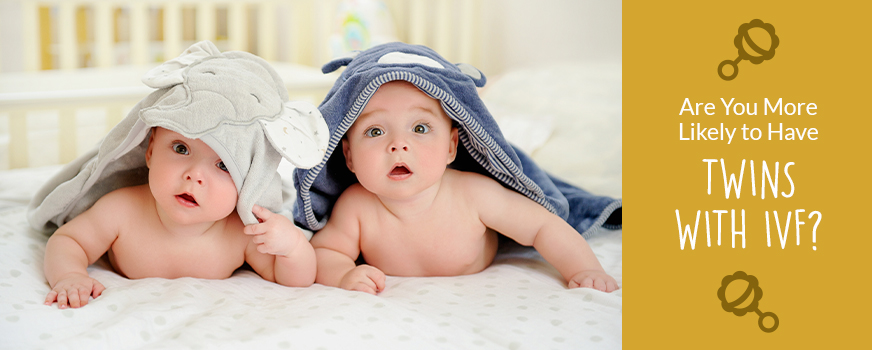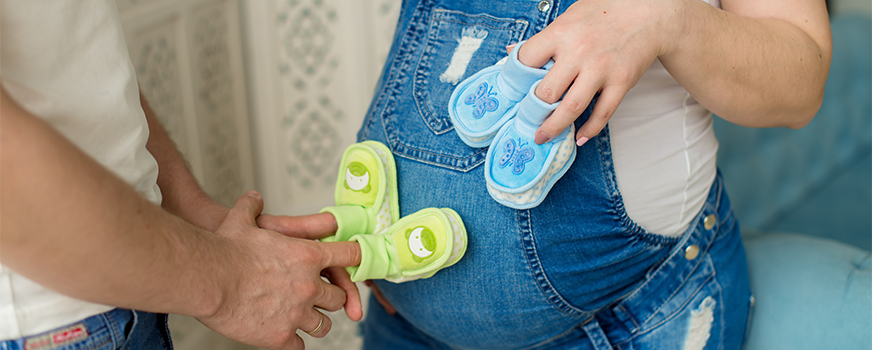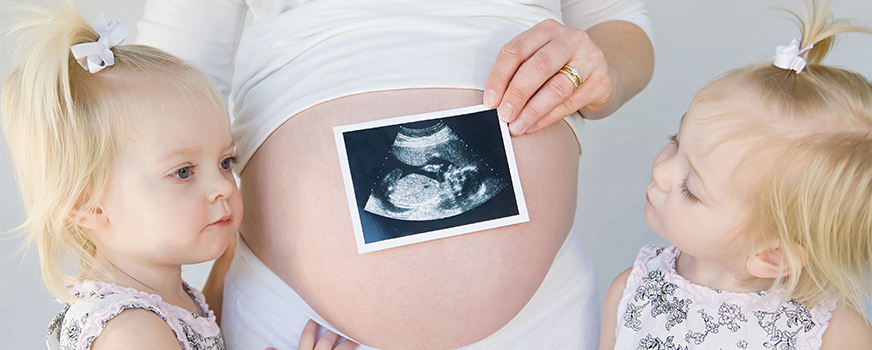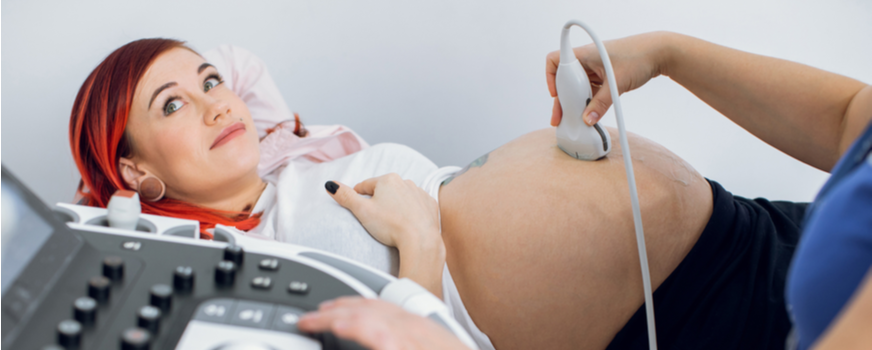
You may have heard stories of IVF ending in multiple pregnancies (hello, Octomom!), but does it really have an impact on having multiples? Learn the science behind IVF and multiple pregnancies, and if twins are seemingly more likely via IVF than natural conception. But first, let’s talk about twins and what can naturally increase the chances of multiple pregnancies.
Types of Twins
Identical Twins
Identical twins involve a single egg being fertilized by a single sperm. Somewhere along the way, the fertilized egg divides into two, resulting in identical twins. The chances of having identical twins are relatively rare – around 3 or 4 in every 1,000 births. And while it may be obvious, identical twins are always the same sex, either both boys or both girls, at birth. Why? Well, they don’t just look alike, they also share the exact same DNA.
Fraternal Twins
Fraternal twins result when two separate eggs are fertilized by two separate sperm cells. Both fertilized eggs implant into the uterus, and 9 months later, two babies are born. Fraternal twins can either be two boys, two girls, or a boy and girl. They may or may not look a lot alike. That’s because, unlike identical twins, they don’t share the exact same DNA. In fact, aside from age, they’re no more similar than brothers and sisters born years apart.

Natural Factors that Affect Having Twins
Genetic Hyperovulation
Hyperovulation, which is a situation where the body releases two or more eggs during ovulation, can be passed down in your DNA from your mom’s genes – or even your dad’s.
Age
Women over 35 have a higher chance of conceiving twins. Hormonal changes that happen as you near menopause may encourage the body to release more than one egg during ovulation.
Height
Taller women seem to have a higher rate of having twins. While this may sound a bit strange, researchers credit a certain insulin-like growth factor with this possibility.
Race
Black women deliver twins at a higher rate than white women, according to 2018 birth statistics in the United States. But Asian and Hispanic women deliver twins at a lower rate than the other groups listed.
Previous Pregnancies
Previous pregnancies may increase your chances of having twins. In fact, women between the ages of 35 to 40 with four or more children are three times more likely to have twins than a woman under 20 without children.

Does IVF Cause Twins?
The process of IVF, or in vitro fertilization, does not necessarily lead to a substantially higher chance of multiple pregnancies. Statistically, women who undergo IVF have multiple pregnancies (twins, triplets, or more) at a higher rate than women who conceived naturally. The rate of twin pregnancies with IVF with fresh embryos is 12.1% for women under age 35 and 9.1% for women ages 35 to 37, compared to the natural occurrence rate of 2% in the general population. The chances decrease with age (unlike natural twin conception), as women 38 to 40 only have a 5.3% rate of twins through IVF. And for those who are 43 and older, the rate is just 0.5%.
The main reason for the seemingly higher occurrence rate of twins through IVF is the practice of transferring more than one embryo at a time in an IVF cycle. Until recently, most fertility doctors routinely transferred multiple embryos in the hope of achieving a better chance of success. Placing two or more embryos into the uterus at a time was thought to increase pregnancy rates, with the hope that at least one would survive. Quite often, more than one embryo will successfully implant, resulting in a multiple pregnancy.
Some couples choose to transfer just one. While the single embryo might split and turn into identical twins, this isn’t too likely. In a similar, less likely situation, for those who do choose to transfer two embryos during IVF, say one of those embryos splits and then all three implant in the uterus. The result would be triplets – two identical twins and one fraternal sibling.

What to Consider with Multiple Pregnancies
While having twins may sound like the kind of two-for-one deal any couple would love to have, especially after experiencing infertility, it really is best to aim for one healthy baby. Potential risks with multiple pregnancies and births include preeclampsia, gestational diabetes, intrauterine growth restriction (IUGR), placental abruption, fetal demise/loss, higher rates of Cesarean birth, preterm labor or delivery, and low birth weights. Your doctor can reduce the odds of multiples with careful monitoring and single-embryo transfer during IVF.
If you are considering fertility treatments to conceive, schedule an appointment with a fertility doctor to talk about twins. Two bundles of joy are certainly something to look forward to, and we have happily helped deliver some healthy and adorable twins into the world! But it is still important to speak with a fertility specialist to understand the expectations and risks when having twins. Reach out to Red Rock Fertility Center today to learn more about twins with IVF and how we can help you grow your family.



